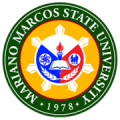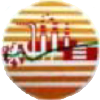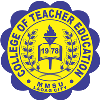NASA scientist teaches researchers, dev’t planners on remote sensing
Dr. Josefino Comiso, senior scientist of the United States National Aeronautics and Space Administration (NASA) trained seven researchers, professors, and development planners from MMSU and from the Provincial Government of Ilocos Norte (PGIN) on remote sensing technology for vulnerability assessment and improved governance of the agriculture sector. He was at MMSU as a DOST balik scientist.
He gave lectures and hands-on training on satellite remote sensing and applications at MMSU Crops Research Laboratory, Jan.11-18. Trainees from MMSU were: Dr. Nathaniel Alibuyog, research director; Dr. Virgilio Julius Manzano Jr., agricultural engineering professor; Dr. Floramante Pastor, science research specialist; Prof. Roseller Ayson, forestry professor; and Dr. Dionisio Bucao, science research analyst. Others were: Juanito Maloom of PhilRice Batac; and engineer Percibal Libed and Nathan Arzadon of PGIN’s agriculture and planning and development offices, respectively.
Dr. Comiso demonstrated to the trainees how remote sensing technology is used to collect satellite data to detect changes in vegetation, especially in forestry and agriculture, and how these could be used to assess the best locations for reforestation and for planting crops. He brought with him samples of satellite (LANDSAT and MODIS) images. The training included validation studies and field trips in some areas identified by the LANDSAT images.
Meanwhile, the trainees will compose the core group in charge of collecting and archiving data and producing geophysical maps that are of interest to scientists, industrialists, farmers, fishermen, and policy makers, and in conducting research projects to be pursued.
As an output of the training, a research proposal on harnessing remote sensing technology for improved agricultural and forest productivity was developed by Alibuyog and Comiso and submitted to Ilocos Norte Governor Imee R. Marcos. The proposal aims to improve crop productivity and provide results needed in the management and governance of rainfed areas in Ilocos Norte using remote sensing technology and models. It specifically targets to develop an environmental monitoring laboratory equipped with an advanced computer system that is dedicated for downloading, processing, and analyzing satellite data; conduct regular inventory on the spatial and temporal acreage of major crops planted in Ilocos Norte; and develop yield forecasting model for rice and corn using MODIS through data assimilation to improve understanding and governance.
The training program is part of the DOST Balik Scientist Program at MMSU coordinated by the Office of External Affairs and Partnership.
Gallery
Dear Valued Client,
We will be introducing our newly upgraded website on October 31, 2024 – offering faster access, improved navigation, and enriched content for students, faculty, partners, and stakeholders. Experience how we cultivate minds and transform futures at MMSU.

 CAFSD
CAFSD CASAT
CASAT CAS
CAS CBEA
CBEA CCIS
CCIS COE
COE CHS
CHS CIT
CIT CTE
CTE COM
COM CVM
CVM Graduate School
Graduate School



_99fb0eb09f48dcbc0f8dd88081f5072c.jpg)
